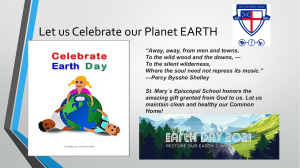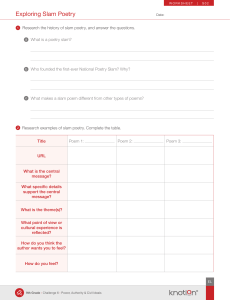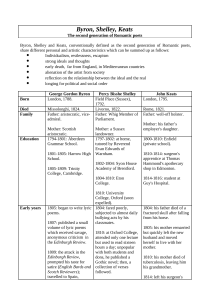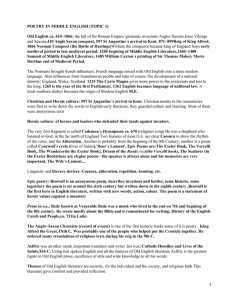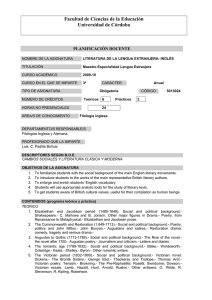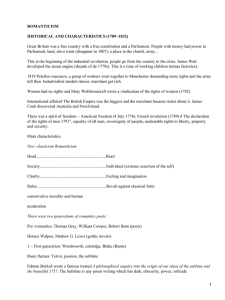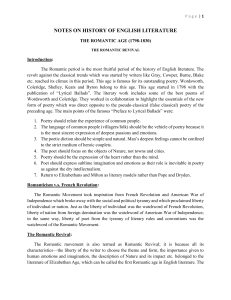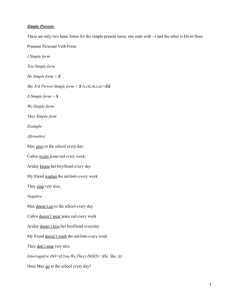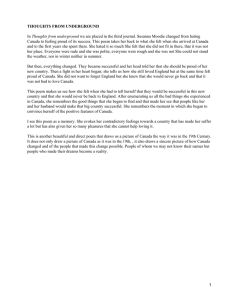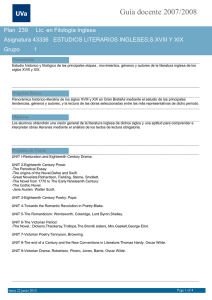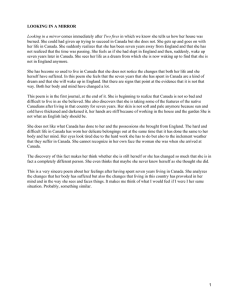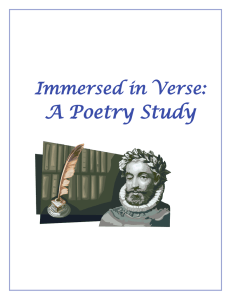Love`s Philosophy by Percy Bysshe Shelley (1803
Anuncio
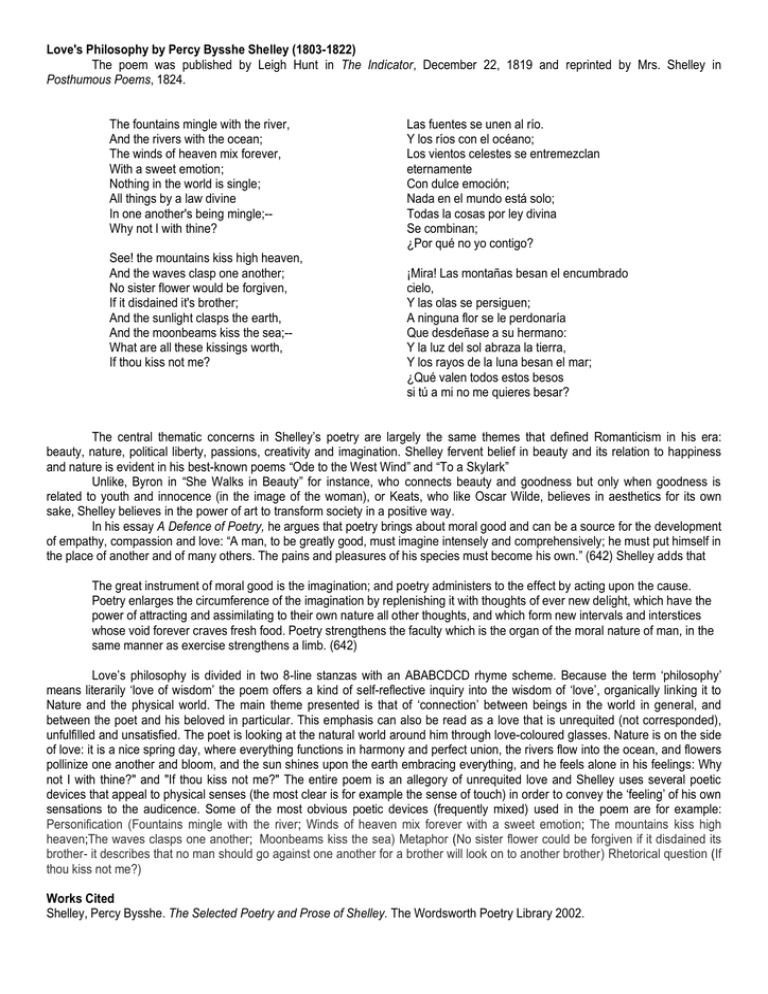
Love's Philosophy by Percy Bysshe Shelley (1803-1822) The poem was published by Leigh Hunt in The Indicator, December 22, 1819 and reprinted by Mrs. Shelley in Posthumous Poems, 1824. The fountains mingle with the river, And the rivers with the ocean; The winds of heaven mix forever, With a sweet emotion; Nothing in the world is single; All things by a law divine In one another's being mingle;-Why not I with thine? See! the mountains kiss high heaven, And the waves clasp one another; No sister flower would be forgiven, If it disdained it's brother; And the sunlight clasps the earth, And the moonbeams kiss the sea;-What are all these kissings worth, If thou kiss not me? Las fuentes se unen al río. Y los ríos con el océano; Los vientos celestes se entremezclan eternamente Con dulce emoción; Nada en el mundo está solo; Todas la cosas por ley divina Se combinan; ¿Por qué no yo contigo? ¡Mira! Las montañas besan el encumbrado cielo, Y las olas se persiguen; A ninguna flor se le perdonaría Que desdeñase a su hermano: Y la luz del sol abraza la tierra, Y los rayos de la luna besan el mar; ¿Qué valen todos estos besos si tú a mi no me quieres besar? The central thematic concerns in Shelley’s poetry are largely the same themes that defined Romanticism in his era: beauty, nature, political liberty, passions, creativity and imagination. Shelley fervent belief in beauty and its relation to happiness and nature is evident in his best-known poems “Ode to the West Wind” and “To a Skylark” Unlike, Byron in “She Walks in Beauty” for instance, who connects beauty and goodness but only when goodness is related to youth and innocence (in the image of the woman), or Keats, who like Oscar Wilde, believes in aesthetics for its own sake, Shelley believes in the power of art to transform society in a positive way. In his essay A Defence of Poetry, he argues that poetry brings about moral good and can be a source for the development of empathy, compassion and love: “A man, to be greatly good, must imagine intensely and comprehensively; he must put himself in the place of another and of many others. The pains and pleasures of his species must become his own.” (642) Shelley adds that The great instrument of moral good is the imagination; and poetry administers to the effect by acting upon the cause. Poetry enlarges the circumference of the imagination by replenishing it with thoughts of ever new delight, which have the power of attracting and assimilating to their own nature all other thoughts, and which form new intervals and interstices whose void forever craves fresh food. Poetry strengthens the faculty which is the organ of the moral nature of man, in the same manner as exercise strengthens a limb. (642) Love’s philosophy is divided in two 8-line stanzas with an ABABCDCD rhyme scheme. Because the term ‘philosophy’ means literarily ‘love of wisdom’ the poem offers a kind of self-reflective inquiry into the wisdom of ‘love’, organically linking it to Nature and the physical world. The main theme presented is that of ‘connection’ between beings in the world in general, and between the poet and his beloved in particular. This emphasis can also be read as a love that is unrequited (not corresponded), unfulfilled and unsatisfied. The poet is looking at the natural world around him through love-coloured glasses. Nature is on the side of love: it is a nice spring day, where everything functions in harmony and perfect union, the rivers flow into the ocean, and flowers pollinize one another and bloom, and the sun shines upon the earth embracing everything, and he feels alone in his feelings: Why not I with thine?" and "If thou kiss not me?" The entire poem is an allegory of unrequited love and Shelley uses several poetic devices that appeal to physical senses (the most clear is for example the sense of touch) in order to convey the ‘feeling’ of his own sensations to the audicence. Some of the most obvious poetic devices (frequently mixed) used in the poem are for example: Personification (Fountains mingle with the river; Winds of heaven mix forever with a sweet emotion; The mountains kiss high heaven;The waves clasps one another; Moonbeams kiss the sea) Metaphor (No sister flower could be forgiven if it disdained its brother- it describes that no man should go against one another for a brother will look on to another brother) Rhetorical question (If thou kiss not me?) Works Cited Shelley, Percy Bysshe. The Selected Poetry and Prose of Shelley. The Wordsworth Poetry Library 2002.
